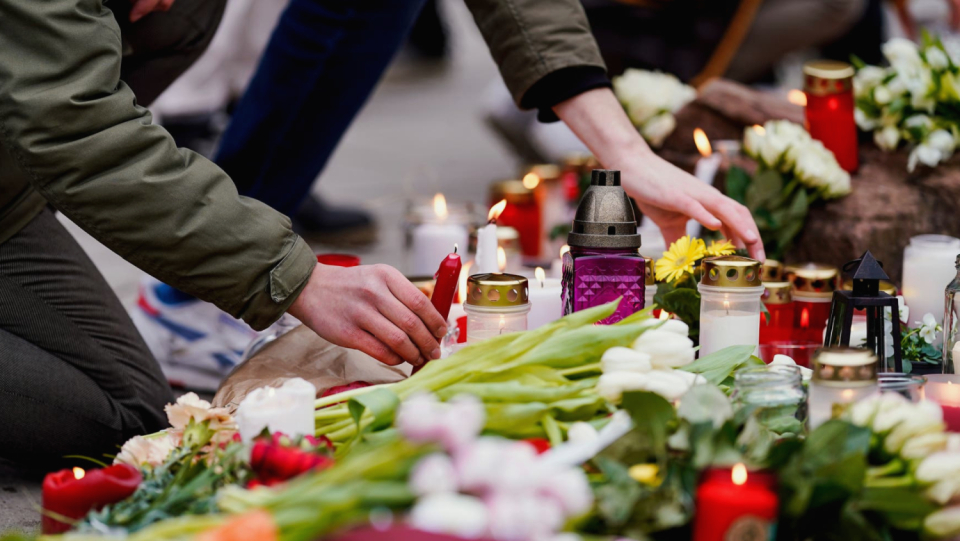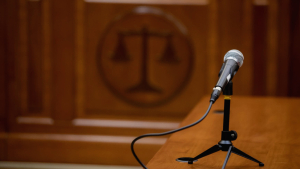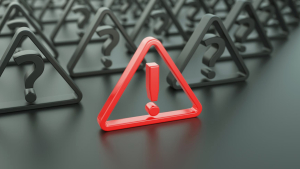On January 24, 2022, a student shot himself during a lecture at Heidelberg University, killing a fellow student and injuring three other people. He then shot himself in front of the building. Such and similar shootings are rare in Germany – but those who witness them up close often take a long time to process them. The criminologist Britta Bannenberg from the counseling network amok prevention explains what helps those affected and why relatives should rather hold back with well-intentioned advice.
According to current information, a gunman has injured three people and killed one in Heidelberg. But there are certainly some more traumatized by the event.
Britta Bannenberg: You can assume that.
Those who have experienced this and were sitting in the auditorium in the trap can not be asked about the events in the days afterwards.
Those affected go through something that is otherwise only known from a novel: an event occurs and life is no longer as it was before.
Such terrible experiences often shape in the long term, which is not over in a few weeks or months.
What about the students and lecturers who were in the building, but not in the lecture hall itself? They can also be traumatized. No hierarchy can be defined here according to the motto: if you were closer to the action, it suffers worse. Many who were not in the lecture hall, but somewhere nearby, will have bad fears. You will feel reminded of a shot in three weeks, if a broomstick falls over at your home and slams on the tiles. You will no longer be able to see a blood splash without having to think about this day and the event. What helps people who have witnessed a killing spree? To be there for you and not to make stupid sayings. Anyone who experiences something like this reacts differently. How exactly, this cannot be predicted. Many do not want to have anything to do with the topic for weeks, don't hear anything about it, don't talk about it. After a few months that may change. But even then you shouldn't say something like that: "Now it was a while ago, now you should really ..." Nobody knows how he would react himself if he was in mortal danger. So we should understand, be open to what our relative or friend needs now. And above all: listen.
If he or she wants to talk at all.
Most want that, the only question is when. And then we should be there. Listen patiently, even if it is five, six, eight times the same story. Ideally, this happens in a private framework and not in larger groups. It would be nice if society would take a little back here. It is important to find a good balance for the individual interlocutor not to be too curious and not to give thousands of advice, which has helped who how and what should be tried out. This is a challenge: really listening, most people hardly endure. They don't want to hear how it was in detail and how the victim felt when he realized that what was happening was bitterly serious.
Why is this so difficult for us?
We don't want to let the mischief in our lives. If we let ourselves be described exactly what happened, how man was hit by a ball next to our friend or girlfriend, as everyone screamed in panic, our own life fell. That is why we often disregard the emotional basic needs of those affected, go over it with apparently clever advice and stop making offers to talk after a few weeks.
How well can professional conversations and therapists help?
This is also a question of timing. Fortunately, there are numerous offers that can and should be carefully submitted to those affected. If a post–traumatic stress disorder develops after a trauma – i.e. if those affected experience the experienced again and again, develop sleep disorders, become frightened - psychological offers of cognitive-behavioral trauma therapy are particularly suitable. They can help those affected to deal better with the stressful memories and to cope with everyday life again.
Chronic and acute stress reactions
Any extraordinary danger to life and limb can leave deep traces in the psyche – even in people who witness such a trauma. Often those affected experience an acute stress reaction immediately afterwards: Typical are irritability, fear, despair, disorientation and the feeling of being numb. In most cases, these symptoms subside on their own after a short time.
If they last longer or do not appear until weeks or months later, this can be a sign of a post-traumatic stress disorder, such as post-traumatic stress disorder (PTSD). At the same time, those affected involuntarily experience the trauma in front of the inner eye again and again, for example in the form of nightmares or flashbacks – although they actually try to avoid memories of what happened. In addition, there are symptoms such as emotional numbness, irritability, frightfulness, sleep disorders and difficulty concentrating. Depression, anxiety or eating disorders can also occur as long-term consequences.
Anyone who suffers from such persistent symptoms should look for help. The first contacts are general practitioners, resident psychotherapists and psychiatrists as well as emergency services from clinics.
At the same time, even with the most well-made offer, you can't expect it to suit everyone. Some do not want to discuss what happened to them with an uninvolved stranger. Others are looking for someone who has experienced something similar to themselves. But such people are often difficult to find: There are things that no therapist, no matter how professional, can understand. Some of those affected find a soul mate in conversations shortly after the rampage, where they would never have suspected him. Others can only think about talking to someone about what they have experienced after a year. No matter whether you have been hurt yourself or have "only" experienced it: Such experiences are often deeply traumatic. And they are all the more disturbing because they are so rare in this country. We live on an island of the blessed. It is not every week that a suicide bomber blows himself up, nor do we lose family members in air strikes.
Fortunately not.
Naturally. But as a result, we, as a society, have no victim experience. Fortunately, most people do not know what fears of death. But for those who had to experience something like this, it is extremely important that society understands that people who felt the proximity to death suffer for a long time.
What do you say to people who are now afraid to go to the lecture hall at their university tomorrow or next week? Something similar could happen.
That this fear is usually unfounded. Firstly, such events are so rare that the probability of being affected yourself is extremely low. Secondly, such acts most often announce themselves, there are omens. From our experience in the counselling network Amokprevention, we know that people who run amok are mentally disturbed characters. They are usually very solitary, but still give hints about what they are up to. Of course, it can always be that such hints are not true- or taken seriously. In such cases, no one is to blame either, this is simply the tragedy of life. However, if you feel that someone could commit such an act and become dangerous for others, you can always contact the police or the Amokprevention consulting network. We currently receive two to three such calls a week, and we take them all very seriously.
Paths from need
Do you sometimes think about taking your own life? Does life seem pointless to you or does your situation seem hopeless? Are you out of hope? Then please contact contact points that can help people in crisis situations: family doctors, psychotherapists or psychiatrists in private practice or the emergency services of clinics. Contacts can be arranged by the medical on-call service on the telephone number 116 117.
The telephone counseling advises around the clock, anonymous and free of charge: by phone among the nationwide numbers 0800-1110111 and 0800-1110222 as well as by email and in the chat on the website www. telefonselsorge.de. Children and adolescents also find help at 0800 - 1110333.



















